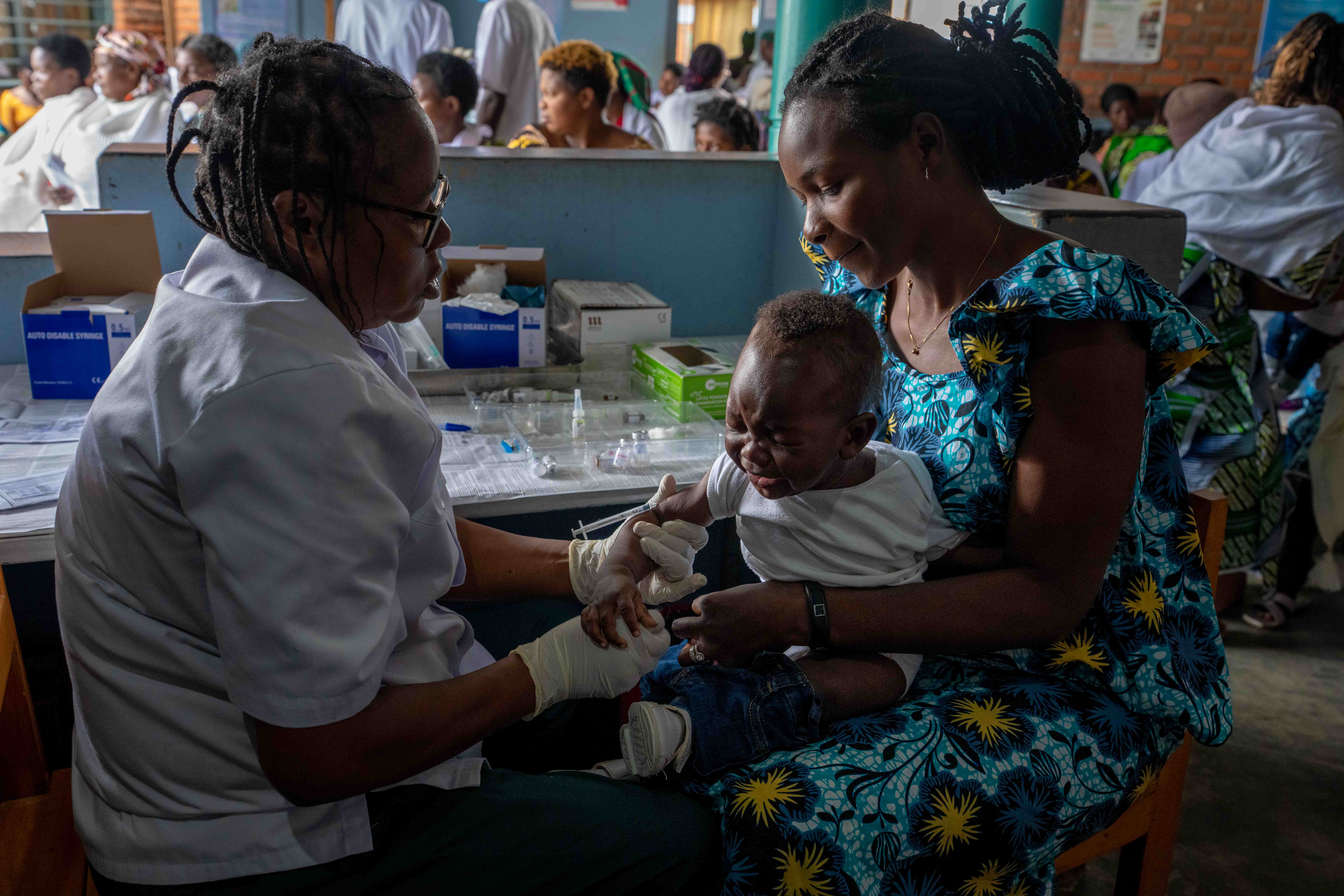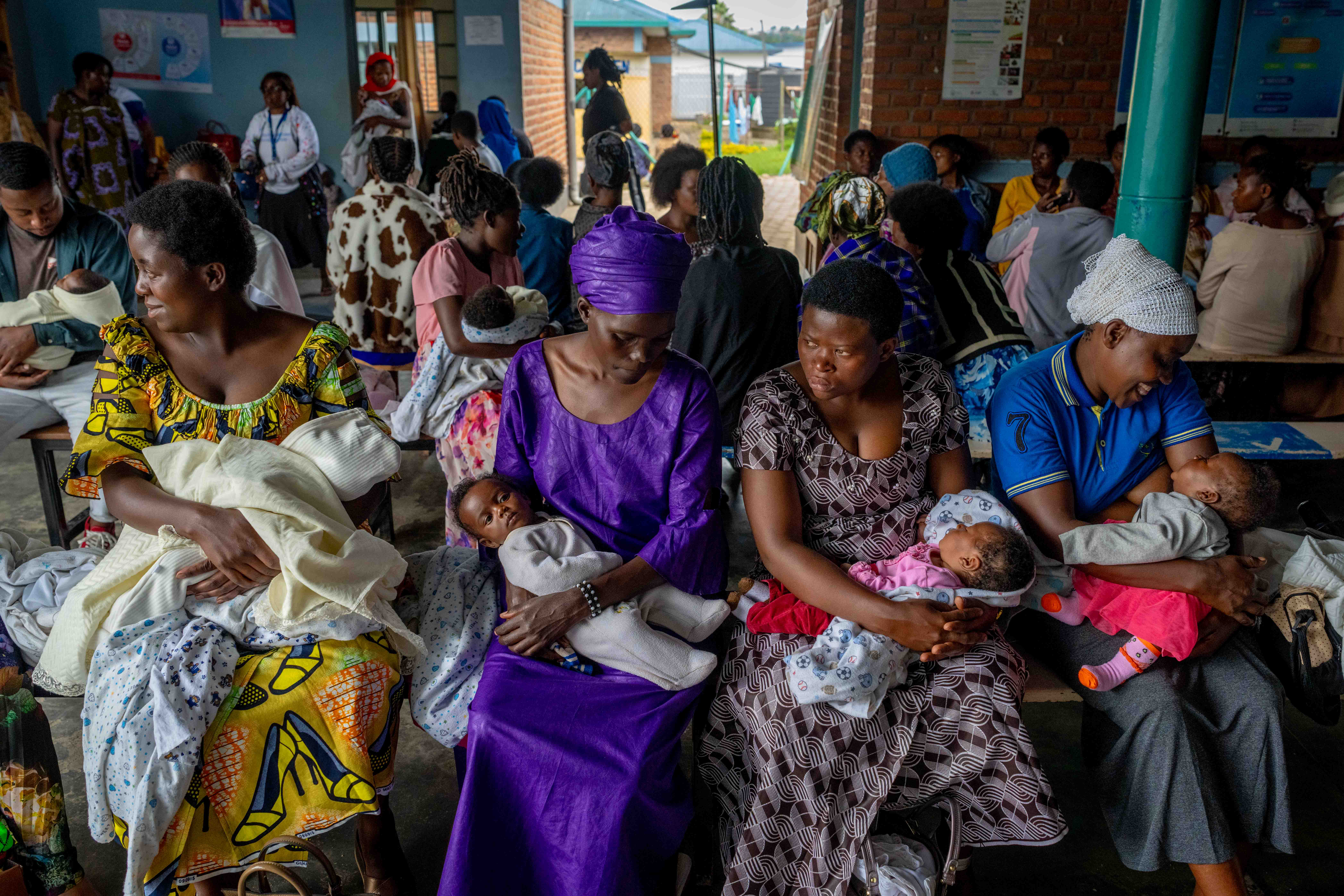September 2025
When public health leaders have access to high-quality data, they can strengthen systems and protect lives. Through the Data to Policy (D2P) program, government staff receive hands-on training to transform complex data into concise, actionable policy briefs. Guided by mentors and through interactive workshops, participants learn to use data to address urgent national health issues. In Rwanda, two cohorts have completed the D2P training, producing six policy briefs. One of the most impactful briefs addressed immunization coverage. Using national data, the team proposed integrating the country’s Immunization Tracker with the Civil Registration and Vital Statistics (CRVS) system and the Health Management Information System (HMIS) to enable real-time monitoring of every child’s vaccination journey—from birth registration to full immunization.
The MoH adopted this recommendation in late 2023 and, together with the National Institute of Statistics, other government agencies, and local governments, initiated implementation in selected districts in early 2024. The integrated system was fully scaled nationwide by mid 2024, creating a unified system that automatically links birth records to immunization schedules. A key innovation was the launch of automated SMS alerts that remind parents of vaccination appointments. This feature, coupled with real-time data for health workers, reduced missed appointments and allowed community health workers to follow up with families whose children were behind schedule.
By late 2024, the integrated data system had already improved coordination between health facilities and district authorities, enabling targeted outreach to under-immunized populations. The data also began informing MoH decisions on resource allocation, vaccine stock management, and sustainability planning for immunization programs.
By late 2025, the impact of this initiative is evident across Rwanda. National reports show:
- 98% Vaccination coverage for measles and rubella (MR2), surpassing pre-pandemic coverage (96%)
- Reduction in missed vaccination appointments, particularly in rural districts
- Improved timeliness of childhood immunizations
- 97% data completeness for childhood immunization records
- Enhanced capacity for evidence-based planning, as immunization and civil registration data are now routinely analyzed for policy refinement
Rwanda’s success story demonstrates how a data-informed policy process, supported by the D2P training and multi-sectoral collaboration, can yield lasting improvements in childhood immunizations. The Rwandan experience continues to draw attention across the region. As other countries explore digital transformation in immunization systems, Rwanda’s journey offers a model for linking data innovation to policy implementation to achieve measurable health advances.






